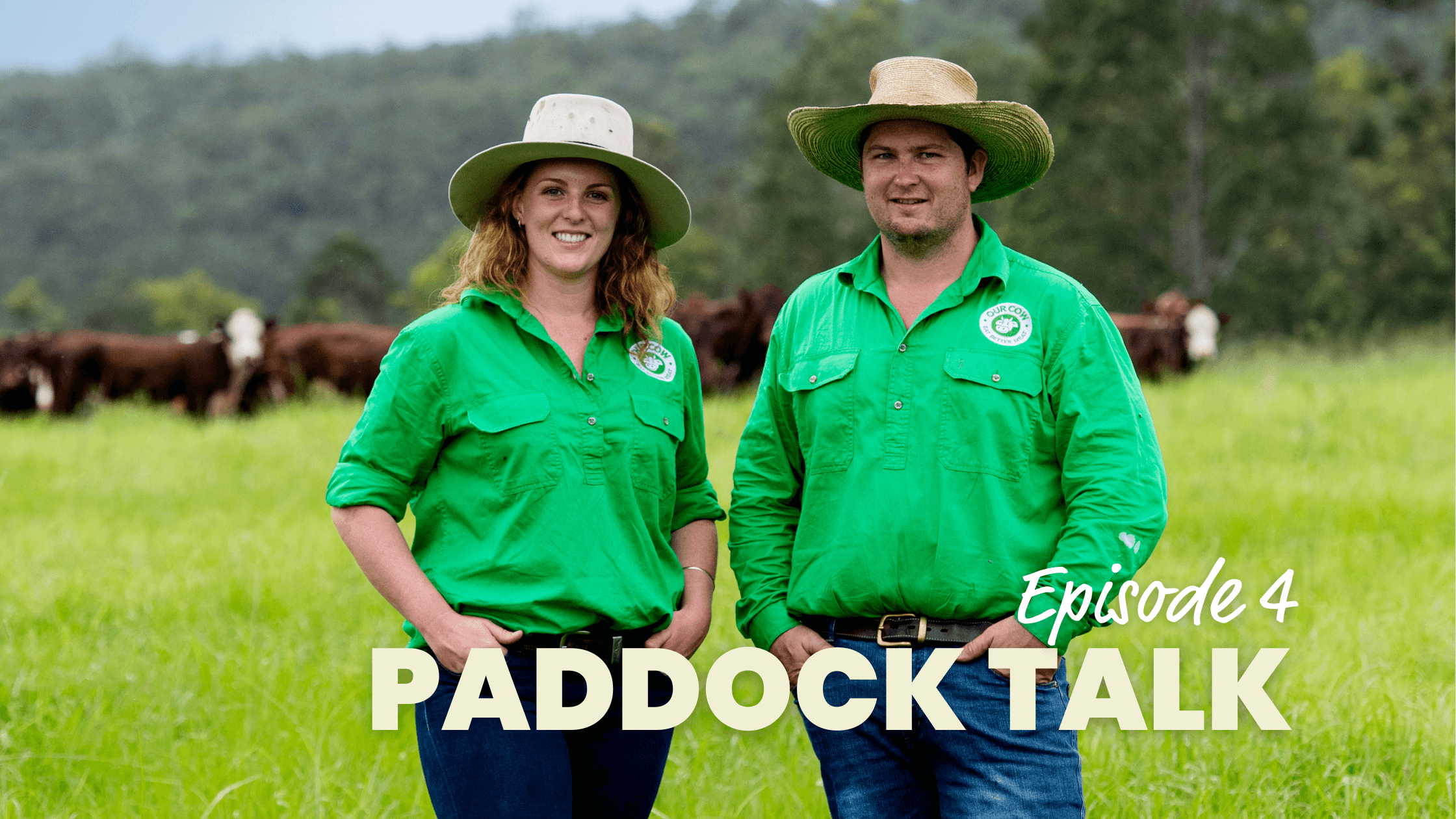Paddock Talk: Episode 4 - The Eungella Shorthorn Legacy of Steve & Michelle

From Soil to Steak: The Shorthorn Legacy of Steve & Michelle on the Dorrigo Plateau
In Episode 4 of Paddock Talk, we head to the lush Dorrigo Plateau in New South Wales to meet Steve and Michelle, fourth-generation farmers behind Eungella Shorthorns. Their story is one of grit, debt, resilience, world-class genetics, and the kind of farming practices that deliver some of the most marbled, mouth-watering grass-fed beef in the country.
This episode isn’t just about cattle, it’s about the reality of farming life: juggling kids on the road, replanting entire pastures after floods, and finding joy in a simple thank-you email from a customer. For anyone who cares where their food comes from, this is a farmer's story you don’t want to miss.
5 Key Takeaways from Episode 4
1. A Family Legacy Rooted in Shorthorns
Steve’s family has been breeding Shorthorns for more than a century, with original cow families still in their herd today. Shorthorns were once a dual-purpose breed, providing both milk and beef, but at Eungella, they’ve evolved into a premium beef herd known for rich marbling and exceptional eating quality. The Macks’ children represent the fifth generation on the land, proving that good farming truly runs in the bloodline.
2. Farming Through Debt and Drought
When Steve and Michelle bought the family farm 12 years ago, they were quickly plunged into drought. Debt forced them into contracting work, while Michelle managed cattle on the road with two kids, and at times, a newborn in tow. It’s a stark reminder that behind every steak lies a farmer’s story of sacrifice, debt, and determination to make things work against the odds.
3. The Science (and Art) of Better Beef
Producing great beef doesn’t happen by chance. Steve and Michelle invest heavily in breeding programs and genetics to produce moderate-framed cattle that finish beautifully on grass. They search pedigrees going back decades to find the right sires, prioritising marbling and carcass quality over size. Their philosophy? Smaller, stockier animals that lay down fat naturally on pasture create steaks that are truly “a cut above the rest.”
4. Soil Health is Everything
“If your soil isn’t alive, you’ve got nothing,” Michelle explains. At Eungella, the focus is on pasture management and soil balance, using compost teas, lime, and microbes to build living soil that grows nutrient-dense grass. Every mouthful of pasture must be packed with nutrition so the cattle thrive without grain. It’s regenerative in practice, even if farmers themselves don’t use buzzwords. As Steve puts it, “There’s no use having the best genetics in the world if the animal is starving hungry.”
5. Weather Extremes Test Every Farmer
Nothing prepared the family for Cyclone Alfred, which dumped 1.5 metres of rain in just four days. Entire paddocks were waterlogged, grass roots eaten out by grubs, and pastures had to be replanted from scratch. Yet, careful planning meant they had years’ worth of silage stored, allowing them to keep their herd intact when many neighbours were forced to de-stock. It’s a reminder that resilience in farming comes from planning, preparation, and a whole lot of grit.
The Human Side of Farming
Amid the challenges, small moments kept the family going. Michelle recalls days when exhaustion set in, only to receive an email from a customer saying it was “the best steak they’d ever eaten.” Those simple words turned despair into pride, showing the power of connection between the paddock and the plate.
This is what makes the Our Cow model different: farmers get more than just a fair price; they get recognition, community, and the reassurance that what they produce is valued.
The Recipe: Big Juicy T-Bone with Creamy Mash
Every episode of Paddock Talk ends with a recipe, and this week it’s a classic. Steve’s favourite meal? A thick, grass-fed T-bone steak with creamy Sebago potato mash and fresh garden veggies. Simple, hearty, and the perfect way to enjoy the Shorthorns’ world-class marbling.
Click here to get the full recipe and cook it at home.
Why This Story Matters
This farmer and founder story shows exactly why Our Cow exists: to support Aussie families who are keeping agriculture alive through good times and bad. By backing farmers like Steve and Michelle, you’re not only putting the best beef on your plate, you’re investing in the future of Australian farming.
🎧 Listen now to Episode 4 of Paddock Talk and hear the full story of resilience, soil health, and Shorthorns on the Dorrigo Plateau.
Listen on Spotify and Apple Podcasts.
